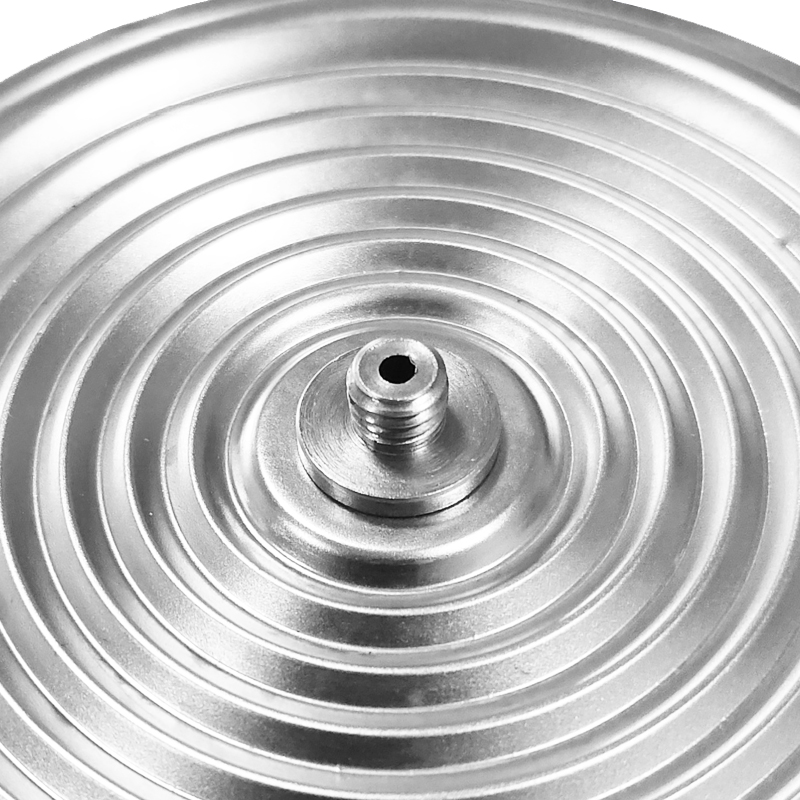
Sep . 15, 2024 04:39 Back to list
High-Precision Pressure Gauges | Precision Instruments for Accurate Measurement
Precision in Pressure Gauge Instruments
Pressure gauges are vital instruments used in various industries to measure fluid or gas pressure with accuracy and reliability. The precision of these devices is paramount as it directly affects the safety, efficiency, and performance of machinery and processes. Understanding the factors influencing pressure gauge precision can help users select the right tool for their specific applications.
Understanding Pressure Gauges
A pressure gauge measures the pressure of a fluid (liquid or gas) within a system and displays it in various units, such as psi (pounds per square inch), bar, or kPa (kilopascals). There are several types of pressure gauges, including mechanical gauges (like Bourdon tube gauges), digital gauges, and differential pressure gauges, each with its own design and principle of operation. The choice of gauge depends on the requirements of the application, such as the pressure range, environmental conditions, and accuracy needed.
Factors Affecting Precision
1. Calibration Regular calibration is crucial for maintaining the accuracy of a pressure gauge. Calibration ensures that the gauge readings align with recognized standards. An uncalibrated gauge can produce erroneous readings, leading to unsafe operating conditions or inefficient processes.
2. Temperature Effects Temperature variations can impact gauge performance. Most pressure gauges have a specified temperature range within which they operate accurately. Extreme temperatures, whether high or low, can cause material expansion or contraction, affecting the readings. Using gauges designed for the specific temperature conditions of an application can enhance precision.
pressure gauge precision instruments

3. Mechanical Properties The materials used in pressure gauges significantly influence their durability and precision. For example, Bourdon tubes made from stainless steel provide both resilience and accuracy, while plastic materials may suffice for low-pressure applications. Understanding the mechanical properties of materials helps in choosing a suitable gauge for the intended purpose.
4. Environmental Conditions Dust, vibration, moisture, and corrosive elements in the environment can compromise the accuracy of pressure gauges. For instance, a gauge exposed to moisture may experience internal corrosion, leading to inaccurate readings. Selecting gauges designed for harsh environments, such as those with protective casings or IP ratings, can mitigate these issues.
5. Installation and Maintenance Correct installation is essential for accurate pressure readings. Improper alignment or securing can lead to mechanical stress, resulting in faulty measurements. Regular maintenance, including cleaning and inspection, ensures the gauge remains in optimal condition, further enhancing precision.
Applications of Precision Pressure Gauges
Precision pressure gauges find applications across numerous industries, including manufacturing, oil and gas, pharmaceuticals, and food processing. In these fields, accurate pressure readings are critical for quality control, process optimization, and safety management. For example, in pharmaceuticals, precise pressure measurements are essential to maintain sterile environments, while in manufacturing, they help monitor the performance of machinery and prevent equipment failure.
Conclusion
In conclusion, the precision of pressure gauge instruments is influenced by various factors, including calibration, temperature, mechanical properties, environmental conditions, and installation practices. Understanding these elements helps users select suitable gauges for their applications and ensures reliable performance. By prioritizing precision in pressure measurement, industries can enhance safety, efficiency, and overall operational effectiveness. In a world where accuracy is paramount, investing in high-quality pressure gauges is not merely a choice; it is a necessity for success.
-
High-Quality Pressure Gauge on Fire Extinguisher - Reliable Water Fire Extinguisher Pressure Gauge Suppliers & Exporters
NewsJul.08,2025
-
High-Quality Water Pressure Differential and Gauge Kit Reliable Manufacturers & Competitive Quotes
NewsJul.08,2025
-
High-Precision Digital Diaphragm Pressure Gauge – Reliable Manufacturer & Competitive Quotes
NewsJul.07,2025
-
Wholesale Diaphragm Pressure Gauge Supplier - Premium Quality & Competitive Price
NewsJul.07,2025
-
Digital Diaphragm Pressure Gauge Reliable & Precise Measurement Top Manufacturers Quotes
NewsJul.06,2025
-
High Accuracy Piston Type Differential Pressure Gauge - Reliable Manufacturers & Competitive Quotes
NewsJul.06,2025
